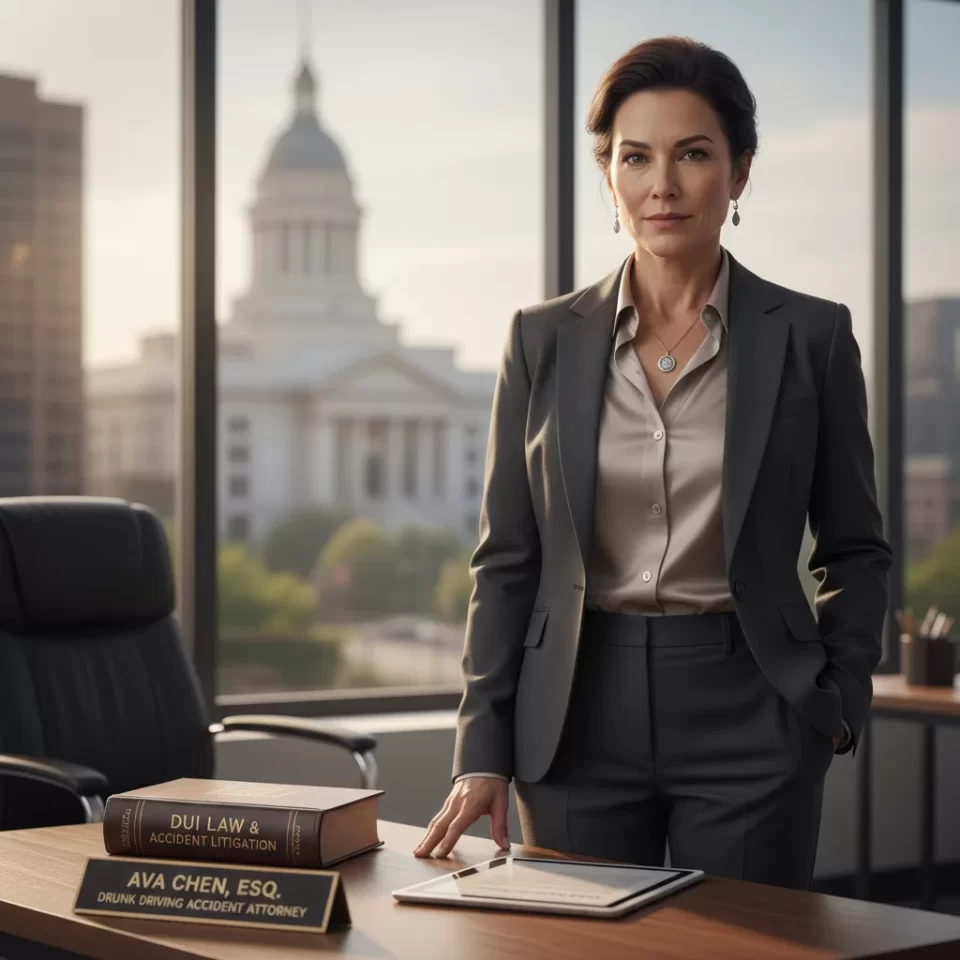- Home
- Sexual Abuse
- Mormon Church Abuse
- LDS Lawsuit
LDS Lawsuit
- February 13, 2026
-
Sarah Miller
- Fact Checked By Our Attorneys
An LDS lawsuit refers to legal action against the Church of Jesus Christ of Latter-day Saints (LDS Church or Mormon Church), often tied to child sexual abuse or financial misconduct claims. Over the past decades, thousands of survivors have come forward with reports of childhood sexual abuse connected to church leaders, volunteers, or programs. These lawsuits have led to major settlements, heightened accountability, and growing public awareness of abuse within the church.
If you or a loved one suffered sexual abuse related to the LDS Church, Legal Claim Assistant can connect you with experienced attorneys for a free, confidential case review.
No Win, No Fee. Let the Best Sex Abuse Attorneys Fight for your Compensation!
Key Takeaways:
LDS lawsuits often involve survivors of childhood sexual abuse within the Church of Jesus Christ of Latter-day Saints (Mormon Church) or its affiliated programs.
Many cases reveal institutional cover-ups, where church officials failed to report or acted to shield abusers instead of protecting victims.
Survivors may pursue compensation for therapy, medical care, lost wages, pain, and trauma, with some cases also awarding punitive damages for systemic misconduct.
The statute of limitations for filing an LDS lawsuit varies by state, but recent reforms in states like Utah, California, and New York have extended filing windows.
- Free, confidential case reviews through Legal Claim Assistant help survivors understand their legal options and take the first step toward justice and accountability.
Find out your eligibility in 2 minutes
If your child has been a victim of sexual abuse, you are not alone. Many families face the same fear, pain, and search for justice. Our team can connect you with experienced child sexual abuse attorneys who understand these sensitive cases, protect your child’s rights, and guide your family through filing a legal claim for the compensation and accountability you deserve.
Begin your free and confidential case review today.

What Is an LDS Lawsuit?
An LDS lawsuit is a legal action brought against the Church of Jesus Christ of Latter-day Saints (LDS Church or Mormon Church) for harm caused by its leaders, members, or organizational practices. The most common lawsuits involve child sexual abuse, where survivors allege that church leaders or local church officials failed to report abuse, covered up misconduct, or allowed known abusers continued access to children.
In addition to mormon sexual abuse lawsuits, there have also been cases involving financial misconduct and tithing funds, where plaintiffs allege the church misled members about how billions of dollars in donations were being used. Some lawsuits highlight the LDS Church’s reliance on clergy privilege and confidential reporting practices, which survivors argue created an environment where sexual abuse occurred without accountability.
Unlike some other religious institutions such as Southern Baptist Convention, LDS lawsuits often emphasize the centralized control of church functions from Salt Lake City. This structure has raised questions about how much responsibility rests with local church leaders versus church headquarters when abuse claims are mishandled.
Survivors argue that holding the organization accountable through the civil lawsuit process is critical to protecting children and ensuring that survivors deserve justice for the harm suffered.
These lawsuits can result in sex abuse settlements, court rulings where the church settled, or trials where juries find that the LDS Church loses lawsuit claims due to negligence. High-profile cases in Arizona, West Virginia, and connections with the Boy Scouts of America demonstrate how widespread and systemic the problem can be across LDS communities.
Learn more about Mormon Church Abuse past cases and the legal process for survivors.
History of Sexual Abuse Claims Against the LDS Church
The history of sexual abuse claims against the Church of Jesus Christ of Latter-day Saints (LDS Church or Mormon Church) stretches back decades. Beginning in the 1980s, survivors started filing lawsuits alleging child sexual abuse by church leaders, bishops, and other trusted members of LDS communities. These early mormon sexual abuse cases exposed patterns of abuse occurring in church-run programs, missionary work, and youth groups.
1980s–1990s: Early Lawsuits and Cover-Ups
During this period, multiple survivors reported being sexually abused by local church officials and volunteers. Many claims revealed that abuse allegations were quietly handled within church disciplinary systems instead of being reported to law enforcement. Some lawsuits alleged that the church covered up wrongdoing, relying on clergy penitent privilege to protect abusers. Families who sought justice in the courts began filing the first wave of lds sexual abuse lawsuits.
2000s: Growing Public Awareness
As more sexual abuse victims came forward, lawsuits gained traction in states such as Utah, Arizona, and West Virginia. Plaintiffs alleged that abuse occurred because the church failed to remove known abusers from leadership or actively discouraged families from reporting crimes. In many cases, adult survivors sought compensation for serious injury and lifelong trauma. Reports by outlets such as the Associated Press and local newspapers in Salt Lake City highlighted systemic problems within the religious organization.
2010s–Present: High-Profile Settlements and Accountability
The last two decades have brought high-profile lds lawsuits that shaped national attention. For example, survivors connected to the Boy Scouts of America filed claims linking abuse to LDS scouting programs, leading to billion-dollar sex abuse settlements. In some cases, the lds church loses lawsuit rulings confirmed the church’s negligence in protecting children. Other cases were resolved when the church settled to avoid trial.
Recent appeals, such as the Arizona Appeals Court decision involving clergy privilege, illustrate ongoing debates about whether church members and leaders should be legally compelled to report abuse to prevent life-threatening harm. These cases demonstrate how legal battles are reshaping accountability standards for the LDS Church and other institutions.
Today, thousands of survivors continue to file mormon sexual abuse lawsuits, with plaintiffs and their law firms emphasizing that survivors deserve justice.

High-Profile LDS Lawsuit Settlements
Over the past several decades, the LDS Church (Mormon Church) has faced multiple high-profile lawsuits involving allegations of child sexual abuse and cover-ups by church officials. Many of these cases have ended in large sex abuse settlements, shaping how survivors and the public view accountability within the Church of Jesus Christ of Latter-day Saints.
Major Verdicts and Settlements
One of the most significant legal outcomes tied to the mormon sexual abuse cases has been the church’s connection to the Boy Scouts of America (BSA) bankruptcy settlement. For decades, the LDS Church was the largest sponsor of Scout troops nationwide. When the BSA filed bankruptcy in 2020 over tens of thousands of childhood sexual abuse claims, the LDS Church agreed to contribute $250 million to the victims’ compensation fund. This was one of the largest single contributions from a religious institution in a U.S. sex abuse lawsuit.
Other lds sexual abuse lawsuits have resulted in confidential settle claims, where survivors alleged they were sexually abused by local leaders such as bishops, mission presidents, and other trusted church members. In some cases, juries awarded multi-million-dollar verdicts when evidence showed that the church covered up abuse allegations or failed to remove abusers despite repeated warnings.
Financial and Institutional Impact
These sexual abuse lawsuits have not only brought financial consequences but also damaged the public reputation of the LDS Church. Settlements in states such as Utah, Arizona, and West Virginia revealed troubling patterns of mishandling child sex abuse claims. Insurance disputes, such as those involving National Union Insurance, further underscored the church’s legal exposure.
Despite payouts, critics argue that the church has sometimes framed abuse as the fault of “only the perpetrator,” rather than acknowledging broader institutional responsibility. However, these cases highlight how lawsuits have pressured organizations of religion, including the LDS Church, to reevaluate reporting policies, especially surrounding clergy penitent privilege.
FREE!
Find out if you're eligible and may be eligible for compensation.
Get your Free Case Review and Maximize You Payout With the Help From Legal Claim Assistant.
Who Can File an LDS Lawsuit?
Not everyone realizes they may qualify to bring an LDS Church lawsuit. Survivors of sexual abuse linked to the Church of Jesus Christ of Latter-day Saints (Mormon Church) and their families may be entitled to legal action and compensation. These lawsuits are not just about financial recovery they are about seeking justice, holding powerful institutions accountable, and protecting victims from further harm.
Survivors of Abuse in LDS-Affiliated Settings
The most common plaintiffs in lds sexual abuse lawsuits are individuals who were sexually abused as children or adults within LDS programs, congregations, or church-run activities. This includes abuse by:
- Local bishops or other trusted church officials
- Volunteers and staff in youth groups such as Scouts or seminary classes
- Church members placed in positions of authority over children and vulnerable adults
If you or a loved one experienced sexual abuse in one of these settings, you may have grounds to file a sex abuse lawsuit against the LDS Church. These cases often arise because church leaders failed to act on prior abuse allegations, covered up misconduct, or discouraged survivors from reporting.
Family Members with Legal Claims
In addition to survivors themselves, certain members of family may also file claims. Parents or guardians can sue on behalf of minors who were sexually abused. In wrongful death cases tied to abuse-related trauma, surviving members of family may also have the right to pursue damages through the legal process.
These lawsuits may include demands for compensation for medical records, therapy, lost wages, and other costs associated with the harm suffered.
Broader Accountability and Institutional Responsibility
While some argue that responsibility lies with “only the perpetrator,” many sexual abuse cases show that the Mormon Church had knowledge of abuse and still failed to save children. When a church sued chooses to settle or faces a jury verdict, it sends a strong message that religious communities cannot ignore abuse within their ranks.
For more on church cover-ups and systemic wrongdoing, see our detailed page on the Mormon Church Scandal.
Statute of Limitations for LDS Lawsuits
One of the most important factors in any LDS Church lawsuit is the statute of limitations (SOL) the legal deadline for filing a claim. Survivors of sexual abuse connected to the Church of Jesus Christ of Latter-day Saints (Mormon Church) often delay coming forward due to trauma, fear, or pressure from church officials. However, state laws are changing, and more survivors now have the chance to pursue justice.
“LDS lawsuits are not just legal battles—they’re a path to truth, accountability, and healing for survivors.”
How Statutes Differ by State
The rules around sexual abuse lawsuits vary widely:
- Utah Home to LDS headquarters in Salt Lake City, Utah has reformed its laws but still places limits on when child sex abuse claims can be filed. Extensions exist for survivors who uncover the impact of abuse later in life, but deadlines can be complex.
- California The state passed a “lookback window” allowing adult survivors of childhood sexual abuse to file claims even if the normal SOL had expired. Many Mormon Church sex abuse lawsuits have been filed under this reform.
- New York Through the Child Victims Act, survivors gained additional time to file. Hundreds of claims were filed against religious organizations, including the LDS Church.
- Other States (e.g., West Virginia) Each state has its own rules, and reforms continue to expand opportunities for survivors of sexual misconduct to take legal action.
Recent Legal Reforms
Across the country, legislators have recognized that trauma often delays disclosure of abuse. As a result, several states have:
- Extended or eliminated filing deadlines for child sex abuse claims
- Created special revival windows for survivors whose cases were previously barred
- Increased penalties for religious institutions like the Mormon Church if leaders covered up sexual abuse cases
These reforms mean that even survivors who believed their time had run out may still be able to file an LDS sexual abuse lawsuit.
FREE!
Find out if you're eligible and may be eligible for compensation.
Get your Free Case Review and Maximize You Payout With the Help From Legal Claim Assistant.
Types of LDS Lawsuits Beyond Abuse
While many legal claims against the LDS Church focus on sexual abuse cases, the church has also faced lawsuits on financial and property-related matters. These additional lawsuits highlight broader concerns about church governance, transparency, and accountability.
LDS Tithing Lawsuits
Some former church members have filed lawsuits alleging that the Mormon Church misused or misrepresented how billions in tithing donations were managed. Plaintiffs claim that the church accumulated vast reserves while presenting misleading information about how member contributions would be spent. These lawsuits often raise questions about financial accountability within religious institutions.
LDS Temple Permit Lawsuits and Property Disputes
The growth of the Church of Jesus Christ of Latter-day Saints has also led to legal battles over land use and zoning. Communities in states such as Utah and California have seen disputes involving temple construction permits, property line disagreements, and conflicts between church officials and local governments. These cases demonstrate that not all legal actions are tied to abuse; some relate to the church’s expansion efforts and interactions with surrounding communities.
Broader Financial Transparency Concerns
Beyond individual lawsuits, critics argue that the Mormon Church should provide greater transparency about how its billions in assets are managed. Investigations and legal filings have suggested that church leaders kept financial records closely guarded, fueling lawsuits from members who felt misled about the true scope of church wealth.
Although these lawsuits differ from high-profile sex abuse cases involving LDS bishops, Mormon bishops, or clergy in other denominations such as a Catholic priest, they still contribute to the broader narrative of accountability. From claims against Michael Jensen to disputes over church funds, legal challenges show that the Mormon Church moves forward amid increasing scrutiny over both spiritual and financial matters.
What Compensation May Be Available in an LDS Lawsuit?
Survivors of childhood sexual abuse in the LDS Church or Mormon Church may be entitled to several types of compensation through a sex abuse lawsuit. The amount and type of damages depend on the circumstances of the case, including the harm suffered and whether there is evidence of a systemic cover-up by church officials.
Economic Damages
Survivors who have been sexually abused often face lifelong costs. Economic damages can cover:
- Therapy and counseling expenses for trauma recovery.
- Medical records and healthcare bills tied to physical or psychological injuries.
- Lost income or reduced earning capacity if the abuse impacted work opportunities.
These damages help ensure that survivors are not burdened with the financial costs of healing.
Non-Economic Damages
Non-economic damages recognize the deep personal impact of abuse. Survivors of Mormon sexual abuse cases can pursue compensation for:
- Emotional pain and suffering.
- Lasting psychological trauma, such as PTSD, anxiety, or depression.
- Broken trust in religious communities and damage to personal relationships with family members or other church members.
These damages acknowledge harm that goes beyond financial loss, reflecting the lifelong struggles faced by survivors of sexual abuse cases.
Punitive Damages
In some LDS sexual abuse lawsuits, courts may award punitive damages if there is evidence that the Mormon Church or its leaders knowingly covered up abuse. This could apply if church officials, such as an LDS bishop or Mormon bishop, failed to act on abuse allegations or attempted to silence survivors. Punitive damages are meant to punish the institution for wrongdoing and to deter future misconduct.
Frequently Asked Questions About LDS Lawsuits
What is an LDS lawsuit?
An LDS lawsuit refers to legal action brought against the LDS Church (The Church of Jesus Christ of Latter-day Saints), often by survivors of childhood sexual abuse. These cases typically involve claims that church officials failed to protect victims, enabled abuse, or participated in cover-ups. Other lawsuits may involve financial misconduct, property disputes, or misuse of tithing funds.
Is there a class action lawsuit against the LDS Church?
While most Mormon sexual abuse lawsuits are filed individually, there have been attempts at class action lawsuits against the Mormon Church. In some situations, survivors join together in coordinated litigation, especially when the church’s systemic failures affected many victims in similar ways. Large-scale cases, such as those tied to the Boy Scouts of America settlements, have also involved LDS Church contributions.
What is the average settlement for an LDS abuse case?
Settlement amounts vary depending on the facts of each case. Some sexual abuse lawsuits against the LDS Church have resulted in payouts ranging from hundreds of thousands to millions of dollars. Factors that affect compensation include the severity of harm, whether cover-ups by church leaders can be proven, and the jurisdiction where the case is filed.
Will my identity remain confidential in a lawsuit?
Yes. Courts often allow survivors of sexual abuse cases to remain anonymous, listed as “Jane Doe” or “John Doe.” Attorneys and judges understand the sensitive nature of child sex abuse claims and take steps to protect survivors’ privacy, including sealing certain medical records or limiting public access to personal details.
Can I still sue if the abuse happened decades ago?
In many states, yes. Thanks to recent legal reforms in places like Utah, California, and New York, survivors of Mormon Church sex abuse may now have extended or even “look-back” windows to file claims even if the abuse occurred decades ago. However, deadlines vary by state, so it’s important to consult an experienced law firm as soon as possible to understand your rights.
Take Action and Seek Justice
Survivors of childhood sexual abuse within the LDS Church (Mormon Church) do not have to suffer in silence. Every voice matters, and every story deserves to be heard. Filing an LDS lawsuit is not only about financial recovery it’s about holding powerful religious institutions accountable, preventing future harm, and seeking justice for the pain endured.
At Legal Claim Assistant, we provide free and confidential case reviews for survivors and their families. Our network of attorneys has experience handling sexual abuse lawsuits against the Church of Jesus Christ of Latter-day Saints, and we are committed to guiding you through the legal process with compassion and care.
Contact us today to see if you qualify to file an LDS lawsuit and hold the church accountable.
You Deserve Justice. Let Us Help.
Speak with a trusted sexual abuse attorney who will stand by your side, protect your privacy, and fight for the compensation you deserve.
No Win, No Fee. Let the Best Sex Abuse Attorneys Fight for your Compensation!
Under 1 Minute
100% Free
Expert-Reviewed
Private & Secure
© 2025 Legal Claim Assistant. All Rights Reserved.
Terms of Service | Privacy Policy | Contact Us | Marketing Partners
Related Article

How a Drunk Driving Accident Attorney Can Help After a Crash

